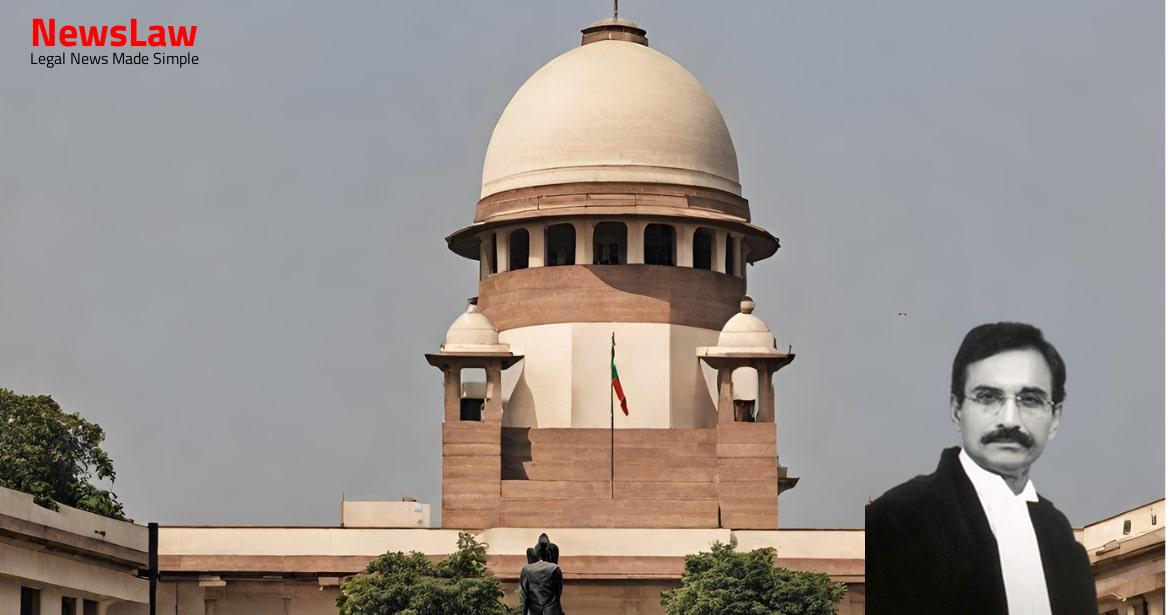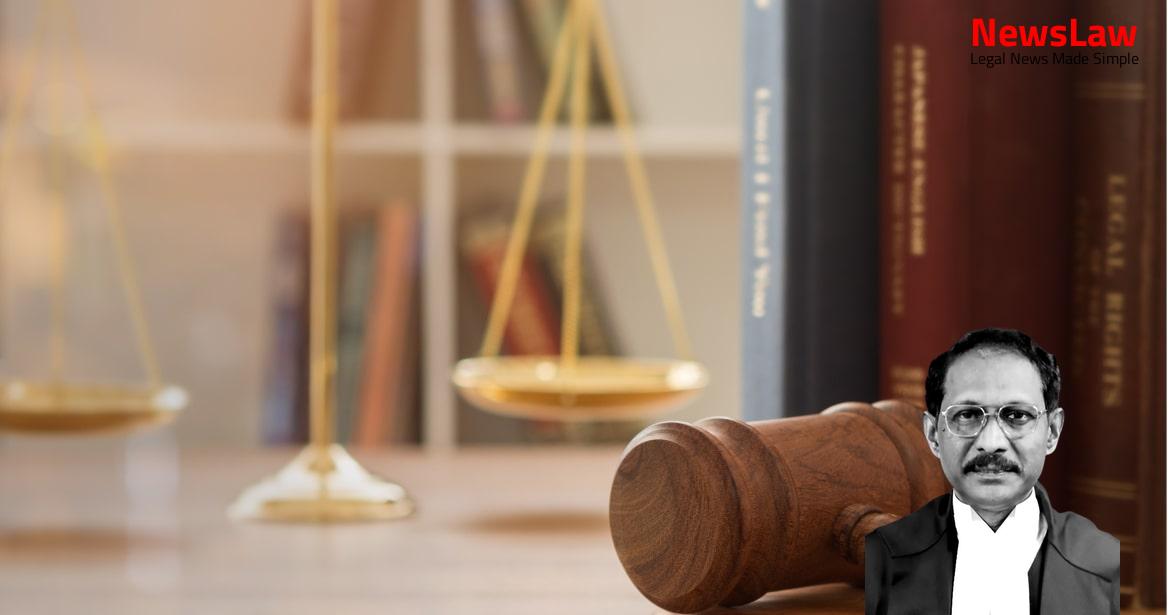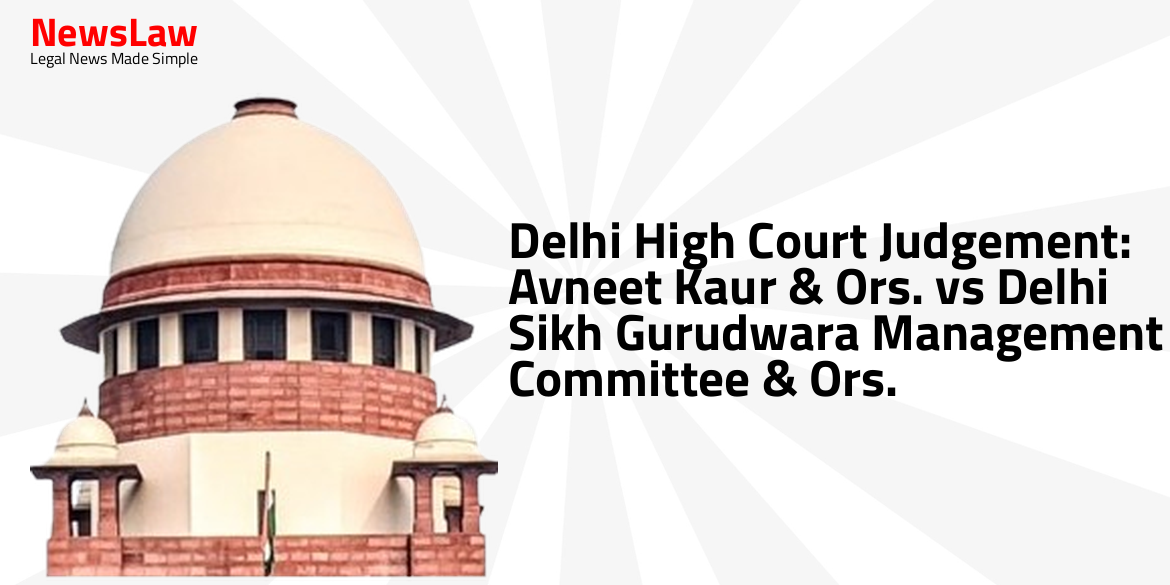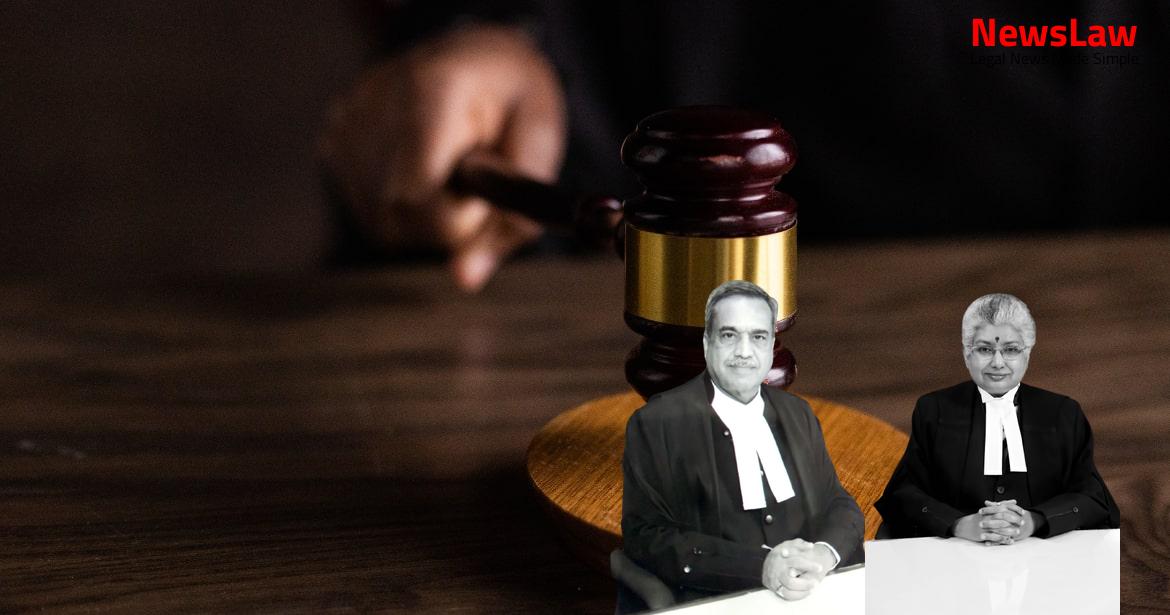Explore a detailed legal analysis in a recent partition suit judgment that highlights the importance of evidence assessment and proper application of legal principles by the court. The judgment showcases how courts interpret and apply laws to determine the rightful entitlements in property disputes. Stay tuned for a breakdown of the court’s decision and its impact on the legal landscape.
Facts
- The trial court had decreed the suit only in favor of plaintiff Nos. 2 and 3.
- Plaintiff Nos. 4 to 8 were not entitled to any share in the suit schedule properties of Mohiyuddin Pasha.
- Defendant No. 8 was entitled to 7/36 share, Plaintiff No. 5 was entitled to 7/72 share, Plaintiff No. 6 was entitled to 7/72 share, and Plaintiff No. 7 was entitled to 7/72 share of the properties.
- Defendant No. 1 was directed to render accounts for the money incurred on the properties and divide the profits earned among the parties as per their respective shares.
- The judgment and decree of the trial court was not challenged by plaintiff Nos. 4 to 8.
- The appellant-defendant No. 1 challenged the judgment and order of the High Court, which was passed in favor of the respondents.
- 1.1
- The First Appellate Court’s judgment was challenged before the Karnataka High Court through a Second Appeal No. 160 of 1995.
- 1.2
- The High Court allowed the appeal without framing questions of law as required by Section 100 of the Code of Civil Procedure.
- 1.3
- The High Court set aside the judgment of the First Appellate Court and reinstated the trial court’s judgment and decree from 11 September 1987.
- 1.4
- The High Court found that the First Appellate Court’s decision was based on conjectures and surmises.
- 1.5
- The High Court ruled that plaintiff Nos. 1 and 2 were not entitled to a share in the suit properties due to the preceding death of Rehaman Barid, plaintiff No.1’s husband and plaintiff No.2’s father.
- 1.6
- The High Court determined the property division among the legal heirs of Mohiyuddin Pasha in specified proportions.
- 1.7
- Plaintiff No.3 was allocated 1/8 share, defendant No.1 was allocated 7/36 share, and plaintiff No.4 was allocated 7/36 share.
- 1.8
- The High Court, in the impugned judgment, ordered the division of suit schedule properties among defendant No.1 and plaintiff Nos. 3 to 8.
Also Read: Presumption of Genuine Endorsements in Cheque Case
Issue
- Whether plaintiffs 1 and 2 are entitled to share in the suit schedule properties
- Rehaman Barid, through whom plaintiffs 1 and 2 claim partition, predeceased his father Mohiyuddin Pasha
- The High Court framed the question of law regarding the entitlement of plaintiffs 1 and 2 to the suit schedule properties
Also Read: Medical Negligence and Compensation: A Landmark Decision
Arguments
- Shri Ananthamurthy argues that the trial court correctly assessed the evidence.
- Defendants and plaintiffs have the right to request to be transposed in a pending suit.
- Shri Ananthamurthy claims that the High Court framed questions of law in a second appeal that are actually questions of fact.
- He believes the First Appellate Court’s well-reasoned judgment should be upheld and the appeal allowed.
- In a partition suit, all parties are viewed equally as both plaintiffs and defendants.
- Shri Ananthamurthy argues that the second appeal by plaintiffs 4 to 8 is not sustainable on this basis.
- Shri Kaushik contends that the questions of law framed by the High Court are related to evidence appreciation and not actual legal questions.
- The High Court’s intervention and reversal of the First Appellate Court’s judgment is justified based on this reasoning.
Also Read: Remand of Writ Petition for Restoration and Decision on Merits
Analysis
- Plaintiff No.3, Mazambi @ Pyarembi, was established to be the second wife of Mohiyuddin Pasha through voluminous evidence including birth certificates and transfer certificates of plaintiff Nos.4 to 8.
- The High Court rightly interfered with the findings of the First Appellate Court, citing a failure to appreciate evidence correctly.
- Evidence from an earlier suit for partition indicated that the Mehar Deed in favor of Noorbi was nominal and not acted upon, supporting the claim that properties did not exclusively belong to Noorbi.
- Defendant No.1’s claims regarding the Mehar Deed were dismissed by the High Court based on his own admission in the earlier suit.
- First Appellate Court’s reversal of trial court findings, based on proper evidence analysis, was deemed erroneous by the High Court.
- Regarding the entitled share in properties, the appellant argued against plaintiff Nos.1 and 2’s claim, stating Rahaman Barid’s precedence in death was before Mohiyuddin Pasha.
- Evidence pointed to plaintiff Nos.4 to 8 being the legitimate children of Mohiyuddin Pasha through his marriage to Plaintiff No.3.
- High Court decision was based on strong reasons, highlighting discrepancies in the First Appellate Court’s judgment.
- Evidence from multiple witnesses and documents supported the marriage between Mohiyuddin Pasha and Plaintiff No.3, despite appellant’s denial.
- High Court deemed First Appellate Court’s findings to be speculative, reinforcing the importance of evidence-led decisions.
- Order 41 Rule 4 of the Code allows the appellate court to reverse the decree in favor of non-appealing plaintiffs and against the defendants.
- Order 41 Rule 33 empowers the appellate court to pass orders for complete justice between the parties even if not all parties have appealed.
- The appellate court can grant relief to non-appealing plaintiffs and make adverse orders against all defendants and in favor of all plaintiffs.
- The contention that plaintiff Nos.4 to 8 are not entitled to relief in the second appeal for not challenging the trial court’s judgment before the First Appellate Court is not sustainable.
- High Courts can entertain second appeals even on questions of fact if the lower courts’ findings are vitiated by a non-consideration of relevant evidence or an erroneous approach.
- The First Appellate Court took a perverse approach in arriving at its findings
- The approach of the First Appellate Court gives rise to a substantial question of law
- The High Court is justified in interfering with the findings of the First Appellate Court
- There is no merit found in the appeal based on the considered view
Decision
- The appeal is dismissed.
- No order as to cost.
- Pending application(s) to stand disposed of.
Case Title: AZGAR BARID (D) BY LRS. Vs. MAZAMBI @ PYAREMABI (2022 INSC 210)
Case Number: C.A. No.-000249-000249 / 2010



